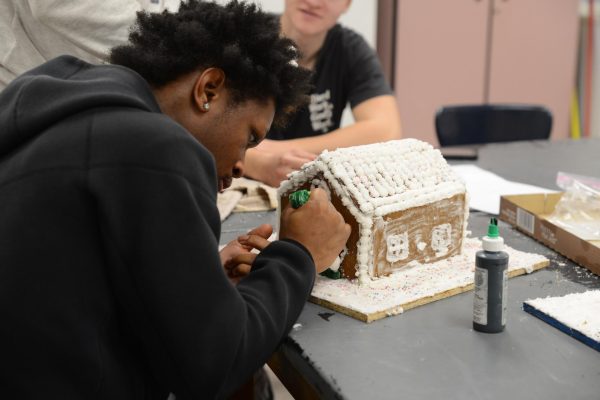Mental health issues are common in teens
Being a student can be difficult and very frustrating, and with all of the things a student is expected to juggle times can get tough. Imagine trying to do all of what is expected of a student while also having a mental health conditions. Unlike other illnesses and injuries, mental illness is not seen and can be just as damaging as other conditions. Almost 20 percent of students are diagnosed with a mental illness. Some students, however, may be unaware of their mental health issues and the treatment available to help. Luckily students and others can learn more about these issues from psychotherapist, Dr. David Seaton.
“[Mental health issues are] anything that really interferes with thinking can prevent a student from successfully obtaining an education,” Seaton said.
Some of the most common mental health issues students face are anything include anxiety disorder, eating disorders, ADHD (attention deficit hyperactivity disorder), mood disorders, and others. With that being said though, there are some that seem to be seen much more often in schools. 11.2 percent of of teens (13-18 years of age) are affected by depression. Depression is a mental disorder that negatively affects students and their ability to lead a life of good social, familial, educational, and personal stability. This disorder can affect virtually anyone. Depression is not only just being sad all the time, but can do serious damage on a person’s ability to think and comprehend information which can lead to a decrease in their performance in school. Having depression may not always be an issue though and help can be sought after. Causes of depressions vary, but sometimes other mental illnesses , such as anxiety disorders, lead to depression. Anxiety disorders are disorders causing a person to frightened, stressed, or uneasy. This disorder may lead to poor school attendance and self-esteem as well as a lack of interpersonal skills. In some cases anxiety disorders may not be easily detected and so therefore treatment may not be sought after. Common anxiety disorders include: panic disorder, obsessive-compulsive disorder, post-traumatic stress disorder, phobias, and general anxiety disorders. If not treated properly, anxiety disorders can also lead to alcohol abuse according to the National Alliance on Mental Illness.
“Drug and alcohol abuse and the addiction coming from this abuse is another big problem students face as well,” Seaton said.
With the proper help and treatment depression and addiction can be detected and managed. Not only is it illegal to use alcohol and drugs, but it can also lead to problems that can be severe if not confronted and treated early on. Consuming and abusing drugs and alcohol and the addiction to them can cause problems that may not be as easily treated and confronted. These problems can cause a person to not function in situations in which focus is demanded such as school.
“As a student you can only do so much for another student. It’s important to know that you can’t help them- they can only choose to help themselves. They have to want help and be aware of what their condition may be doing to them and to their experiences in education. You can only let them know of what their options may be,” Seaton said.
For students who suffer from mental health issues there are various places to seek help. There are therapists who can offer a clinical opinion and possible treatment by means of medication and therapy. Despite the stigma, therapy can be a very affective way of treating a mental illness. Sometimes talking to someone about what is going on may be the only way to a better self being. If the problem is not as significant as assumed, a student can always count on a trusted adult to offer as much help as may be needed. Parents are also a source of help as well. Consulting your physician can also help you to find where help is available as well. Management of a mental health issue can be easily done if one chooses to seek help and treatment. “All you can do is make it known to a person that there is absolutely nothing wrong with seeking help. Most help is good help,” Seaton said.







